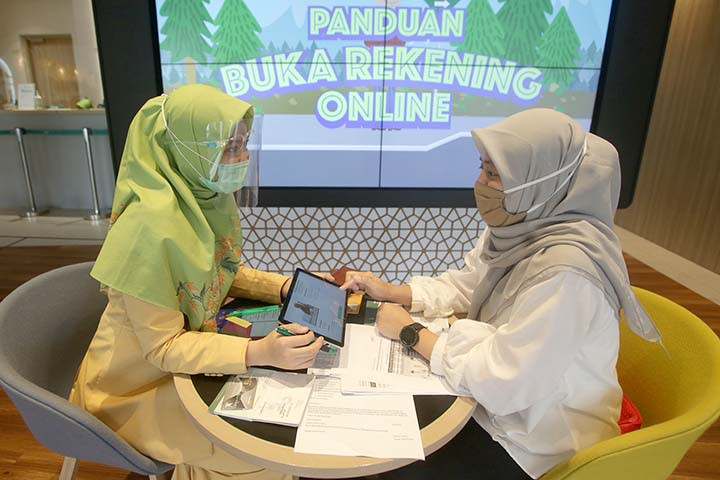Popular Reads
Top Results
Can't find what you're looking for?
View all search resultsPopular Reads
Top Results
Can't find what you're looking for?
View all search resultsState initiated Bank Syariah Indonesia to tap into global sukuk market
After the merger is concluded, Bank Syariah Indonesia is expected to hold Rp 214.6 trillion (US$15.24 billion) in assets with a core capital of Rp 20.4 trillion and the bank could become one of the world’s biggest sharia banks by market capitalization by 2025.
Change text size
Gift Premium Articles
to Anyone
T
he government is moving steadily closer to creating the country’s biggest sharia bank, which is expected to help bring in funding raised from the global sukuk market to support Indonesia’s infrastructure development.
State-owned Bank Mandiri’s subsidiary Bank Syariah Mandiri (BSM), Bank Negara Indonesia (BNI) subsidiary BNI Syariah (BNIS) and Bank Rakyat Indonesia (BRI) subsidiary BRI Syariah signed on Wednesday a merger deed after each of the three banks secured shareholder approval to merge into one entity. The shareholders also agreed on the bank’s new logo and name: Bank Syariah Indonesia with publicly listed BRI Syariah being the surviving entity and bearing the new name.
The signing marks the first step of the legal merger scheduled to be completed in February next year, Deputy State-Owned Enterprises (SOEs) Minister Kartika “Tiko” Wirjoatmodjo said.
“We hope the sharia bank will obtain a license to access the global sukuk market to help the country fund its infrastructure projects like toll roads or power plants,” he said during the signing virtual press briefing.
“We hope that this sharia bank can help Indonesia to have a strong and healthy sharia ecosystem, as well as becoming one of the leading banks in the global sharia economy.”
After the merger is concluded, Bank Syariah Indonesia is expected to hold Rp 214.6 trillion (US$15.24 billion) in assets with a core capital of Rp 20.4 trillion and the bank could become one of the world’s biggest sharia banks by market capitalization by 2025.
Bank Mandiri will hold a 51.2 percent stake in the sharia bank, followed by BNI at 25 percent, BRI at 17.4 percent, BRI Pension Fund (DPLK) at 2 percent and the public at 4.4 percent.
BSM president director Hery Gunardi, who is also in charge of the sharia bank merger and will be Bank Syariah Indonesia president director, said the global sukuk market, especially in the Middle East, was a promising source of funding and Indonesia had yet to fully tap into the market to raise funds for domestic projects.
The value of sovereign sukuks reached $69 billion last year worldwide, according to data portal Statista, while corporate sukuks amounted to $24.4 billion. Malaysia is the leading sukuk issuer, followed by Saudi Arabia and Indonesia.
“We also hope that we can have a representative office in Dubai [in the United Arab Emirates] to assist Indonesian companies, especially state-owned enterprises that want to issue a global sukuk,” he said.
Hery added that the sharia bank was open to strategic partnerships with overseas investors through a rights issue. He, however, said that the plan would be announced after the merger was completed. The new entity is currently waiting for clearance from the Financial Services Authority (OJK) banking supervision commissioner.
Hery went on to say that aside from conducting the merger, his team was also preparing the new bank’s business plan for 2021 to 2023. The business plan includes providing individual customers with sharia services and strengthening wholesale business by building relationships with anchor clients, as well as providing financing for the anchor clients’ value chains.
“We will continue to strengthen our retail and consumer segments, as well as to participate in the micro loan program [KUR],” said Hery, adding that the sharia bank would still maintain its presence in the micro, small and medium enterprises (MSMEs) segment.
Hery also added that the bank would develop its own digital banking services to improve customer experience and would continue to provide gold pawning and installment features.
BRI Syariah president director Ngatari gave an assurance during the event that the three sharia banks would continue to operate normally during the merger process and that the operational and services integration would go in parallel with the merger.
Institute for Development of Economics and Finance (Indef) senior economist Aviliani told The Jakarta Post in October that the creation of one, big sharia bank in Indonesia was necessary to bring in potential funding from other Muslim countries, especially Middle Eastern ones.
The merger plan could also help to strengthen the country’s economic system as the sharia financial system had proven to be more resilient especially during a crisis, she added.
She, however, said grabbing a wider market share remained a challenge due to a lack of awareness and literacy about sharia financial products in Indonesia. To tackle this issue, she suggested that the government support the sharia bank by utilizing it to finance various government projects.
“They could also provide incentives for halal-oriented businesses that use sharia bank financing for their products,” she said.










